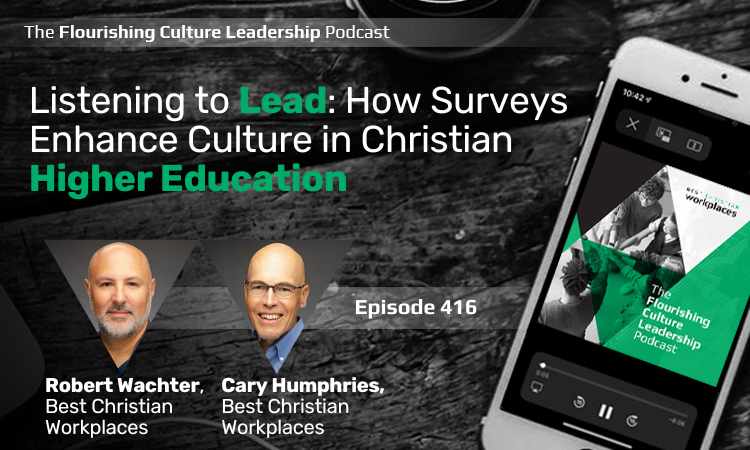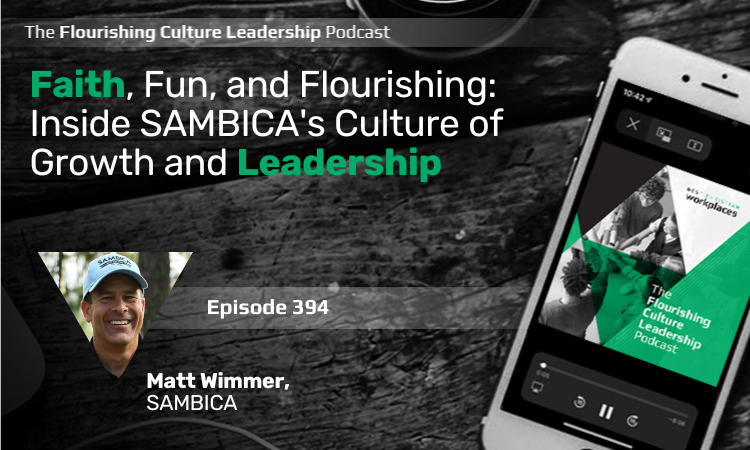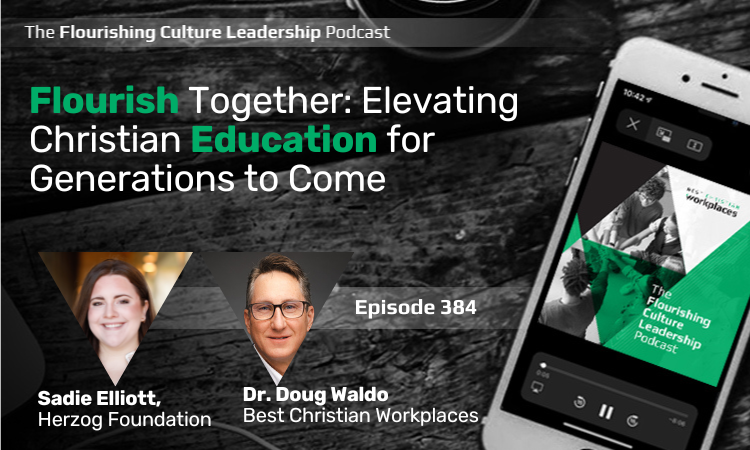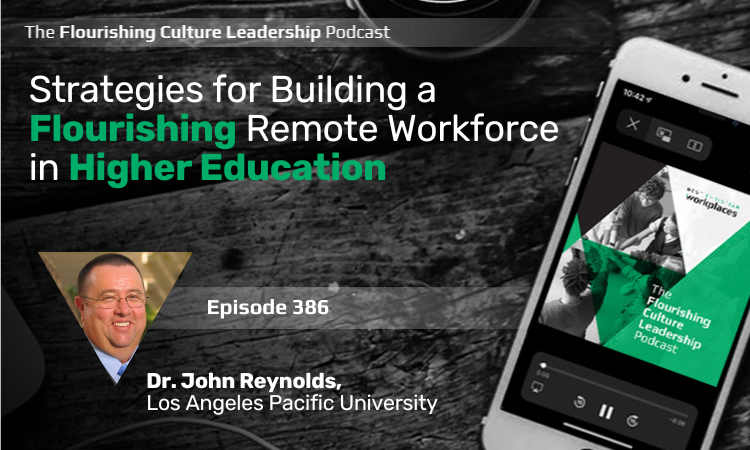2 min read
416: Listening to Lead: How Surveys Enhance Culture in Christian Higher Education
 Best Christian Workplaces
:
November, 13 2024
Best Christian Workplaces
:
November, 13 2024

In this special edition, Best Christian Workplaces' Robert Wachter and Cary Humphries join us for an in-depth discussion on the unique challenges facing Christian higher education. Tune in to gain valuable insights into employee engagement trends, strategies for fostering a flourishing culture, and an introduction to the new Adjunct Professor Engagement Survey designed to strengthen institutional health.
Listen to the Audio
Listen in Apple Podcasts | Listen in Spotify | Listen in YouTube Music
In this episode:
Sector Health and Engagement in Higher Education
- Best Christian Workplaces’ aggregated data reveals that the higher education sector scores lowest in organizational health, with a 3.82 score on a 5-point scale—falling into the "unhealthy" category. (03:18)
- Higher education also shows the lowest employee engagement rate at 44%, well below the overall 58% average across all sectors. (03:56)
Comparative Engagement and Sector-Specific Challenges
- Globally, only 30% of employees are engaged, making Christian higher ed’s 44% somewhat higher, though still troubling compared to other ministry sectors. (04:51)
- Cary Humphries highlights unique tensions in higher education, such as:
- Faculty vs. Administration Tensions: Faculty’s sense of ownership over mission and decisions can clash with administrative decisions, especially around governance and resource allocation. (06:23)
- Societal Issues: Universities face pressures from societal debates on topics like human sexuality, adding further complexity. (07:37)
Influence of Compensation and Benefits
- Compensation and benefits weigh more heavily in engagement for higher education compared to other sectors, though still less so in Christian higher ed than secular institutions. (10:17)
Key Culture Drivers for Improvement
- Three primary engagement drivers were noted:
- Inspirational Leadership (weighted heavily at 17.5%) – Includes aspects like trust, Christian character, and fairness. (12:19)
- Life-Giving Work (weighted at 15.6%) – Many employees are motivated by mission, reflected in high engagement scores related to meaningful work. (14:48)
- Healthy Communication (weighting just under 15%) – This area, particularly around decision-making transparency and staff involvement, scored lower in higher ed, indicating a need for improvement. (14:53)
Importance of Employee Surveys and Engagement
- Emphasizes how institution-specific employee surveys provide critical micro-level data for enhancing workplace culture. (18:30)
- Engagement involves creating a workplace where employees can bring their full potential, which is impactful for leaders, students, and peers alike. (19:23)
Impact of Workplace Culture on University Success
- Healthy workplace culture is likened to fertile soil that helps universities flourish, boosting enrollment, donor engagement, and Kingdom impact. (20:25)
- Unhealthy culture can hinder an organization’s mission and limit its potential. (20:39)
Launch of the Adjunct Professor Survey
- Developed to meet the unique needs of adjunct faculty, recognizing that standard surveys do not address adjunct-specific challenges. (22:13)
- Created in partnership with a university and adjunct faculty input, the survey includes tailored questions to reflect adjuncts' unique roles and experiences. (23:24)
Value of the Adjunct Professor Survey for University Leaders
- Adjuncts represent the brand and mission of universities, especially for online programs where students may interact only with adjuncts. (26:08)
- The survey provides actionable insights that help institutions better engage adjuncts, which strengthens their connection to the mission and positively impacts student experience. (27:47)
Significance of Long-Term Data and Partnerships
- BCW’s survey approach focuses on operational engagement rather than just marketing; it’s about long-term improvement, not merely earning a “best workplace” badge. (29:38)
- As more data is gathered over time, BCW will be able to provide benchmarking data to help universities see how their culture compares to similar institutions. (31:40)
Certification as a Best Christian Workplace
- Certification goes beyond a promotional tool; it is a validation of a healthy culture, producing lasting impact and aligning with Kingdom values. (32:11)
- BCW’s certification is employee-driven, celebrating true cultural health, making it more than just a “badge” but a testament to an organization’s flourishing environment. (32:38)
Resources and Next Steps
- Listeners are encouraged to download the “State of the Christian Workplace Report” and explore demo options for both the Employee Engagement and Adjunct Professor Surveys on BCW’s website, workplaces.org (33:08)
Read the Transcript
Read a complete, word-for-word transcript of the episode
FOLLOW OUR HOST
Follow our Host, Al Lopus, on LinkedIn & Twitter.
Email our host at al@workplaces.org

394: Faith, Fun, and Flourishing: Inside SAMBICA's Culture of Growth and Leadership
Today, we're diving into practical steps leaders can take to boost employee engagement with insights from Matt Wimmer, CEO and Executive Director of ...




